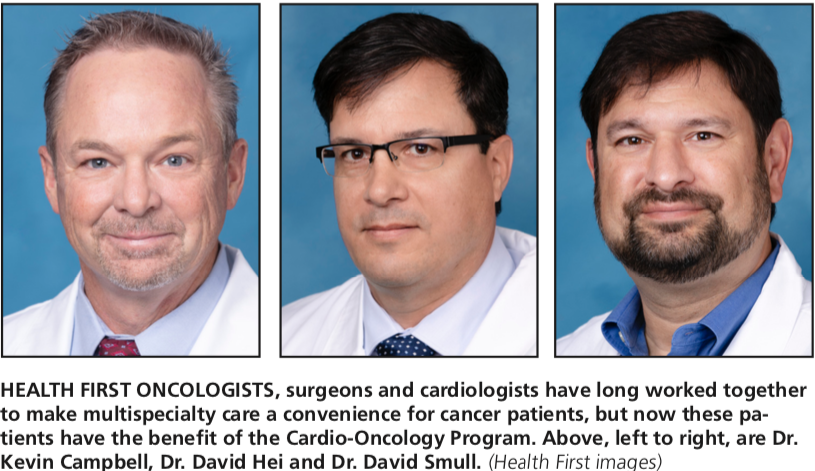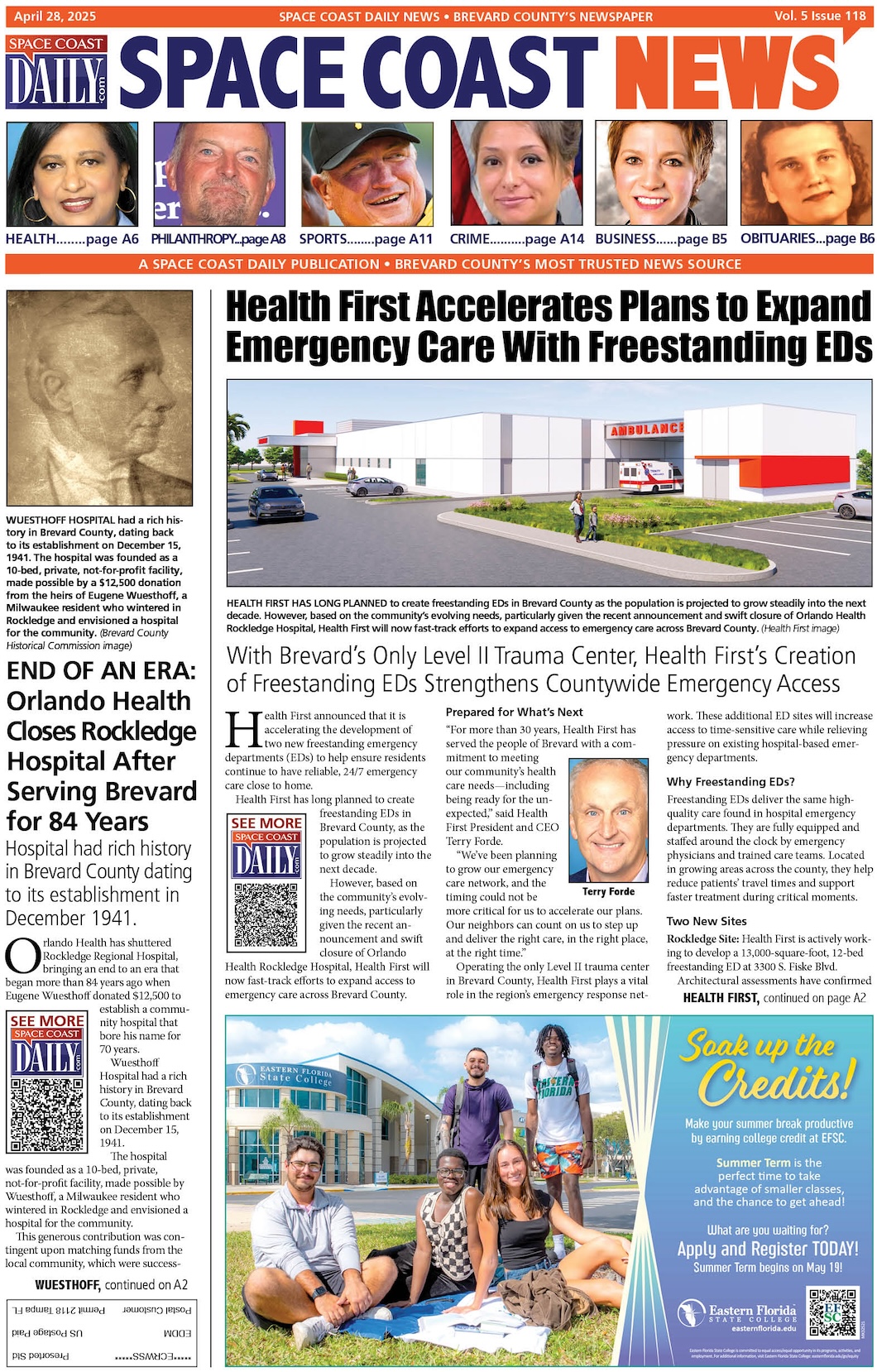Health First Cardiologist: Your Cancer Fight Shouldn’t Be Paid for in Heart Health
By Space Coast Daily // July 24, 2023
At the Crossroads of Cancer Care and Heart Health

BREVARD COUNTY, FLORIDA – The costs of fighting cancer are many, from our financial footing to our time and vigor. Physicians know that some cancer patients will go on to experience cardiovascular complications as a result of their cancer therapies.
As an Integrated Delivery Network, Health First oncologists, surgeons and cardiologists have long worked together to make multispecialty care a convenience for cancer patients. Now, cancer patients receiving certain cancer therapies or who suffer particular pre-existing conditions can enter the Cardio-Oncology Program at Health First.
“Patients need a place to go where they can make sure they’re getting state of the art care,” says Health First Cardiologist David Smull, MD, who along with fellow Cardiologist Enrique Polanco, MD, helped stand up the program in Melbourne last year.
“It’s not good enough to have a great oncologist. It’s not good enough to have a great cardiologist. You need a multi-disciplinary approach because the complexities of care have increased so much.”
Cardio-oncology brings together aspects of leading-edge cancer care with the imaging and diagnostics of cardiology in the hopes of preventing or treating heart and vascular conditions that may arise from chemotherapy.
In April, Health First Cardiologist Kevin Campbell, MD, formally expanded the program to Viera Hospital.
“This need for this specialty continues to grow as patients with cancer live longer as a result of lifesaving targeted and immunologic cancer therapies beyond the usual chemotherapy and/or radiation therapy,” he says. “Often, potentially cardiotoxic anticancer treatment is necessary in patients with baseline cardiovascular disease.”
“One of the most effective therapy drugs for breast cancer can cause heart damage in a small percentage of people, and this is many years after beating cancer,” says Health First Oncologist David Hei, MD, Clinical Associate Director of Medical Oncology for the health system. “We know that by evaluating people and being proactive, we can prevent a lot of this, we can reduce the severity or reverse the effects.”
The most common and serious nexus of oncology and cardiology is heart failure brought on by the cancer drug anthracycline. But cancer treatment broadly has become more novel and diverse, and some therapies have been correlated with heart and vascular damage over time.
“I just treated a patient in their 20s who had complications from a checkpoint inhibitor,” says Dr. Smull. “Here’s a young person who would not typically come onto the cardiological spectrum were it not for their exposure to the toxicity from cancer treatment, but in the Cardio-Oncology Program, we can help oncologists manage the patients so they get successful cancer therapies.”

At the Crossroads of Cancer Care and Heart Health
Radiation and chemotherapy may be damaging to the heart and arteries, causing these cardiac conditions:
■ Arrhythmia (an abnormal heartbeat)
■ Cardiomyopathy
■ Myocarditis
■ Pericarditis
■ Hypertension/hypotension
■ Cardiac valve damage, coronary artery disease, peripheral artery disease and more.
Until now, no cardio-oncology program has been established in Brevard County.
“This is something some of the bigger academic health systems are offering, so we’re proud to be able to offer this to Brevard as part of our cancer care,” says Dr. Hei.
Along with a stress test, a new patient may undergo an echocardiogram with strain, which measures cardiac performance by evaluating the myocardium (the heart muscle). This baseline test is particularly useful for those at risk of chemotherapy-induced heart failure. This study measures the length of the heart muscle at contraction and relaxation and can be used to gauge changes in time.
Permissive cardiotoxicity is a strategy that manages the benefits of treatment against the costs of treatment-induced cardiovascular disease. Cardio-oncology specialists will introduce cardioprotective drug therapies at critical moments in cancer treatments “to see if we can continue to push through with chemotherapy,” Dr. Campbell says.
“When you have a cancer diagnosis, other health issues, including cardiovascular health, can have a significant impact on our ability as oncologists to successfully deliver treatment,” Dr. Hei says. “It’s so important for patients to stay on schedule with their regimen. The Cardio-Oncology Program gives us the opportunity to identify problems before they can derail cancer treatment.”
State-of-the-Art Technology
Health First has created a cardio-oncology referral set in its patient portal, Athena. The referrals go directly to Cardio-Oncology Program physicians’ offices.
The program relies on Health First’s investments in state-of-the-art technology, specifically its advanced imaging services and cardiac MRI machines.
“This is a new specialty within cardiology, sanctioned by the American College of Cardiology, and Health First is bringing this to Brevard County to provide the kind of comprehensive, holistic care to cancer patients we know is critical,” Dr. Campbell says.
“I trained at Cleveland Clinic and Columbia University in New York City,” says Dr. Smull. “One thing you learn at those places, patients come with the expectation of getting the best care. We have that care from the top to the bottom here at Health First.”
Visit HF.org/news to keep up with the latest at Health First.












